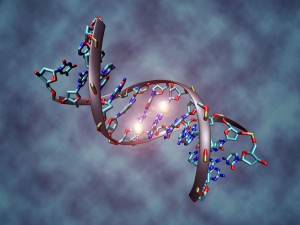DNA evidence was once thought to be the holy grail of evidence. For years, forensics told us, and T.V. shows dramatized, the infallibility of DNA. Since it’s unique to each individual, how could it possibly not be reliable? Well, some research now shows that DNA evidence can be faked.
DNA Evidence Not As Reliable As Once Thought
 DNA evidence isn’t as reliable as CSI, or any number of other T.V. shows, might have you believe. In a recent expose in the New York Times, Andrew Pollack reports that “scientists in Israel have demonstrated that it is possible to fabricate DNA evidence, undermining the credibility of what has been considered the gold standard of proof in criminal cases.”
DNA evidence isn’t as reliable as CSI, or any number of other T.V. shows, might have you believe. In a recent expose in the New York Times, Andrew Pollack reports that “scientists in Israel have demonstrated that it is possible to fabricate DNA evidence, undermining the credibility of what has been considered the gold standard of proof in criminal cases.”
The research showed that scientists were able to fake blood and saliva samples containing DNA from a person other than the actual donor of the sample. If someone had access to a DNA profile in a central database, they could reconstruct a phony crime without any DNA evidence at all.
It’s so simple, according to researchers, that “Any biology undergraduate could perform this.”
Faking DNA evidence is, fortunately, not a fatal blow to the forensics profession. Researchers also noted that it’s much easier to fake DNA than plant fingerprints at a crime scene. And, as evidence mounts, with more and more ways to analyze a crime scene, faking a crime becomes increasingly difficult.
This digital forensics expert company has been doing research for decades, and has over 40,000 cases under its belt. Their secret is extensive and thorough analysis using multiple disciplines and approaches, not just one.
And, really, this is what the research shows – that while one method may be faked, it’s much more difficult in the context of a multi-angle approach.
DNA Databases And Ethics
Given that DNA can be faked, and that it’s not too terribly difficult, the question of ethics in DNA databases arises. Do we really want a centralized database where anyone can be profiled with information which can be easily faked by anyone with a BA in biology?
Every profile in the UK, for example, is derived from a sample of human material, like hair strands or saliva. Critics of this type of system point out that collection of DNA material may become an invasion of personal privacy as law enforcement and other government agencies start sharing more and more information to gain intelligence on real and perceived threats to national security.
These days, there’s a real struggle between the need for security and personal privacy, and many governments have chosen to be more aggressive with their search and collection policies.
When you consider the recent research showing how easily DNA can be faked, it sets off alarms in even the most level-headed citizens.
More Pros and Cons
The most obvious benefit of DNA evidence is that, when it’s not faked, it provides clear evidence at a crime scene. The “faked” evidence is a problem when it’s being swapped out to frame someone. But, the actual evidence itself does show to whom the sample belongs.
Matching crime-scene evidence to old crimes or to people who committed crimes in the past was previously impossible. With DNA evidence, investigators can solve decades-long mysteries, providing stronger evidence for previously committed crimes, extend sentences, and close more cases.
The cons include the facts that DNA evidence can be held by police long after a person is found innocent, and declining voluntary testing subjects innocent people to extra scrutiny.
Photo Credit
DNA Molecule – Wikimedia Creative Commons
Guest Author Bio
Jared Stern
 Jared Stern is the CEO of Prudential Associates, a company focused on digital forensics and investigative technical project management. He has over 24 years of experience as a private investigator licensed by the Maryland State Police, executing and managing more than 2,000 computer-related investigations at every level, including clandestine activity monitoring in civil and criminal cases, recovery of stolen data and equipment, and computer forensics and eDiscovery on networks, desktop computers, laptop computers and cell phones. Mr. Stern holds Forensic Tool Kit (FTK) vendor-specific certification as an Access-Data Certified Examiner (ACE) and has provided computer-related investigative support/contribution to the FBI, the Montgomery County (Maryland) Police Department, and other government organizations.
Jared Stern is the CEO of Prudential Associates, a company focused on digital forensics and investigative technical project management. He has over 24 years of experience as a private investigator licensed by the Maryland State Police, executing and managing more than 2,000 computer-related investigations at every level, including clandestine activity monitoring in civil and criminal cases, recovery of stolen data and equipment, and computer forensics and eDiscovery on networks, desktop computers, laptop computers and cell phones. Mr. Stern holds Forensic Tool Kit (FTK) vendor-specific certification as an Access-Data Certified Examiner (ACE) and has provided computer-related investigative support/contribution to the FBI, the Montgomery County (Maryland) Police Department, and other government organizations.
Recent Guest Author Articles:
- How Strong Business Training Translates Into Everyday Decision-Making
- New Career and Degree Paths for Educators Who Want to Make a Broader Impact
- Finding the Right Plumber in Portland: A Comprehensive Guide for Homeowners
- Why Choose Elara Caring for Jackson, MI Home Health Services?
- How I Turned Poetry into a Paycheck


Please Share Your Thoughts - Leave A Comment!